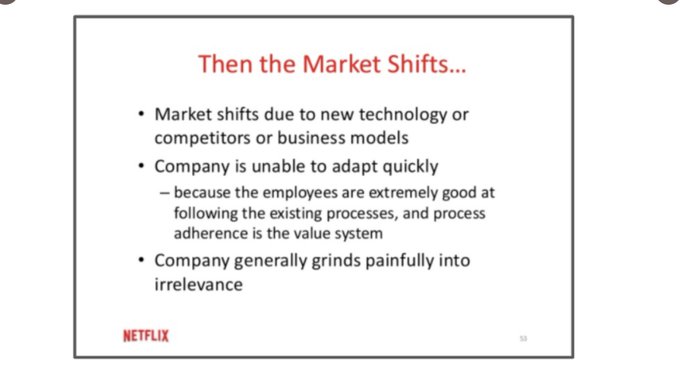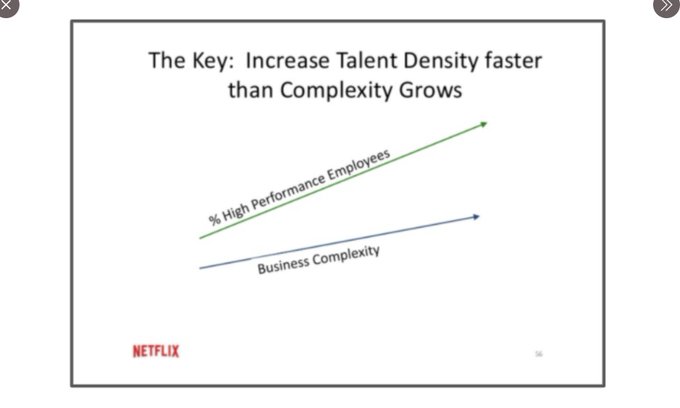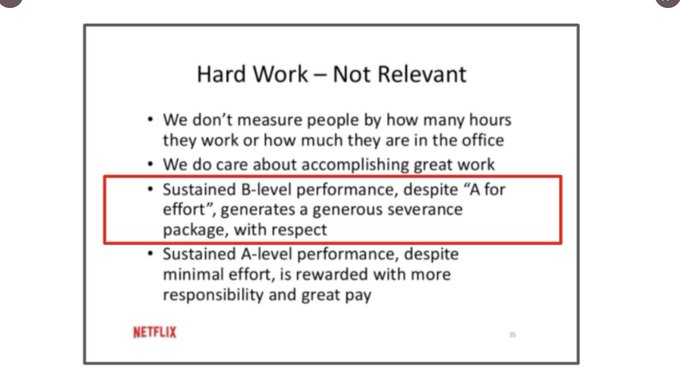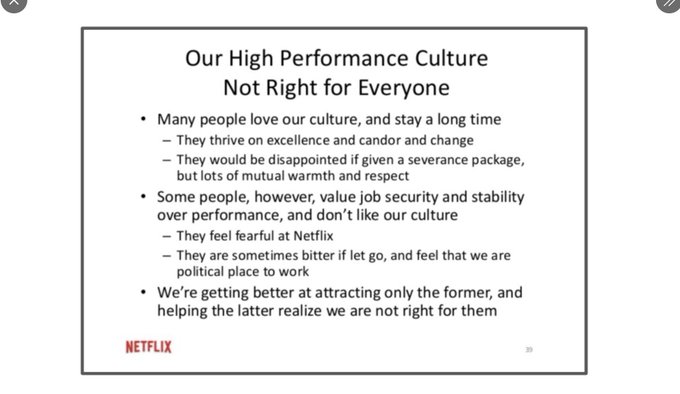Unconventional leadership means having a different set of rules (or no rules) than what is taught in management-schools .
For example , leat’s start with an unconventional thought .
Have you been ever asked by your manager ‘Are You Failing Enough’ ?
Well it sounds very contradictory as in schools/colleges/organisations ,we’ve been trained, motivated and coached to become more successfull.
But all of us would agree that life is little more complex than what we’re told on day-to-day basis.
Why Failing is Important ?
Few years back, even as his company was enjoying unparalleled success , Netflix CEO Reed Hastings was worried .
His worry was not about the success his company was enjoying, it was not about having too many hit shows but rather having a lower failure rate , it was about not failing enough.
“Our hit ratio is too high right now,” he told a technology conference. “We have to take more risk…to try more crazy things…we should have a higher cancel rate overall.”
Even Amazon CEO Jeff Bezos, arguably the most successful entrepreneur in the world, makes the case about ‘failing enough ‘as directly as he can that his company’s growth and innovation is built on its failures.
“If you’re going to take bold bets, they’re going to be experiments,” he explained shortly after Amazon bought Whole Foods. “And if they’re experiments, you don’t know ahead of time if they’re going to work. Experiments are by their very nature prone to failure. But a few big successes compensate for dozens and dozens of things that didn’t work.”
It is quite counter-intuitive for most of managements at large compaines. Many of these conventional leaders and organizations live in fear of mistakes, missteps, and disappointments — which is why they have so little innovation and creativity.
These conventional people are over -obssesed to put processes , systems and SOPs around each & everything and thus creating a suffocating environment for any creativity, any risk-taking and feeling proud about it . They are so worried about the failure or system-leaks that they’re ready to sacrifice the success .
They don’t understand that you’re not prepared to fail, you’re not prepared to learn. And unless people and organizations manage to keep learning as fast as the world is changing, they’ll never keep growing and evolving.
Right after he became CEO of Coca-Cola Co., James Quincey told his team ,”“If we’re not making mistakes,” he insisted, “we’re not trying hard enough.”
Uncoventional Leadership Lessons from Netflix:
Netflix is one the companies that is run very unconventionally and is doing great , disrupting many old conventional business models.
There are many lessons that can be learnt from Netflix, a fast-growing company.
Here are few slides from famous 2009 presentation deck of the company that highlights its approach towards business ,people and procedures.
Although the presentation talks more about hiring /retaining talented people but at the same time it highlights the shortcomings of having an overly -process-driven conventional company.
Point 1:
Most businesses get more complex as they grow.
To deal with this, companies introduce processes (and bureaucracy), which has the adverse effect of driving out creative talent.
The innovative/creative and out-of-the-box approach that initially brings a company to certain level of success is scarificed in the name of having processes/systems and SOPs.

Point 2:
Processes may be good for a manufacturing industry , on a factory floor, in accounting or processes can be good for short-term .

Point 3 :
But during market shifts, process-driven companies are ill-prepared to change or adapt.
Netflix or any other company that competes in fast-moving industries (tech, media) that require creativity, innovation and quick adaption.
It needs the right talent to manage the market shifts.
Whereas conventinal managers focus on processes, unconventional leadership emphasies on having the right talent.

Point 4:
Netflix’s ongoing challenge is to scale its business and deal with complexity WITHOUT bringing in more processes.
To do that, Netflix needed to staff with lots of A+ creative talent. It does so by offering:
-Top-of-market compenstaion
-Tons of freedom

Point 5 :
Well ,here is another counter-intuitive approach !
Hard-work does not matter !
Quite an unconventional leadership thinking.
If an employee is hard-working but doesn’t fit, he/she quickly be dropped…as famously highlighted in this slide:

Point 6 :
Another unconventional leadership style is hiring the people that fit-in your culture rather fitting the culture for the employess .
Netflix explicitly states that its culture is not for everyone.

Like It, Hate It:
You might not like all the points and may not agree to certain approaches ,but Netflix is succeeding, here is the proof :
Netflix’s revenue per employee is $2.6m.
More than:Apple ($2m)
Alphabet ($1.4m)
Microsoft ($877k)
If you want to read a book about uncoventional leadership , you can try The Outsiders .
And if you wanna know some of more unconventional thoughts , you can scan through the deep-dive articles , may be you can begin with Domino Effects of Early Success .
25 claps






Absolutely correct Sir. Creativity and engagement of the employees will give sustainable growth to the organisation.